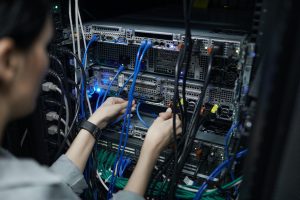
24/7 Emergency Service
For help with all your Data N Electrical needs, please feel free to CALL US today!
As solar energy becomes more popular, an increasing number of homeowners are considering installing solar panels on their roofs. If you’re among them, you’ll need to learn about the process and the costs involved. In this blog post, we’ll outline everything you need to know about solar installations. We’ll also provide some tips to help you get started. So read on to learn more!

The cost of solar panel installation will vary depending on the size and type of system you choose. For a typical residential system, you can expect to pay between $3,000 and $20,000. The federal government offers a tax credit of up to 30% of the cost of installing a solar system, which can significantly reduce the upfront cost. In addition, many states offer their own incentives for installing solar panels.
Solar panel systems typically have a payback period of 4-8 years, after which they will start to generate significant savings on your electricity bills. And, of course, solar panels also help to protect the environment by reducing your carbon footprint. So if you’re looking for a way to save money and do your part for the planet, solar panel installation is definitely worth considering.
Solar panels are a great way to reduce your carbon footprint and save money on your energy bill. Solar panels collect solar energy from the sun and convert it into electricity. This electricity can be used to power your home or business. Solar panels are a renewable energy source, which means they do not produce greenhouse gases or pollute the environment. Solar panels are also very durable and require little maintenance. They can last for decades with proper care. installing solar panels can also increase the value of your home or business. solar panels are a great investment for anyone interested in reducing their carbon footprint and saving money on their energy bill.
Solar panels are gadgets that turn sunlight into electricity. When the sun shines on the solar cells, the photons (particles of light) knock electrons loose from their atoms. The electrons flow through the cell and into an electrical circuit. This created direct current (DC) electricity. An inverter then converts the DC electricity into alternating current (AC) electricity, which is what powers our homes and businesses.
Solar panels are typically made of silicon, a semiconductor material. When sunlight hits silicon, it causes the release of electrons, which creates an electric field. The electric field pushes the electrons through a circuit and into an electrical grid, where they can be used to power homes and businesses. Solar panels are an efficient and clean way to generate electricity, and they have the potential to provide a significant portion of our energy needs.
Solar hot water systems are a great way to save energy and money while helping the environment. But how do they work? Solar hot water systems rely on the sun to heat water. They have a collector that gathers sunlight and converts it into heat. This heat is then used to heat water in a storage tank.
The water in the storage tank is usually kept at a temperature between 60 and 70 degrees Celsius. Solar hot water systems can be used to heat water for domestic use or for swimming pools. They are also often used in commercial applications, such as hotels and office buildings.
Solar installations are becoming increasingly popular as a way to generate electricity. Solar panels convert sunlight into electricity and can be used to power everything from small devices to entire homes. There are a few things to keep in mind before installing solar panels, however. First, it is important to make sure that the location you choose for your panels will receive plenty of sunlight. Second, you will need to decide whether you want to purchase or lease your panels. And finally, you will need to have your electrical system inspected by a qualified professional to ensure that it meets all local codes and standards. By following these simple steps, you can ensure that your solar installation will be a success.
As of 2019, the federal government offers a solar investment tax credit (ITC) for both residential and commercial properties. The ITC is a dollar-for-dollar reduction in income tax liability, and it applies to both purchase and lease agreements. The ITC is available for taxpayers who install solar photovoltaic (PV) systems, solar water heaters, fuel cells, and small wind turbines. In order to qualify for the ITC, the PV system must be placed in service before December 31, 2023. After that date, the ITC will decrease incrementally each year until it expires at the end of 2025. The ITC can be claimed by individual taxpayers, corporations, partnerships, trusts, and estates. For more information on the solar ITC, please consult your tax advisor.
With all of this information in mind, it is important that homeowners considering solar installations do their homework to ensure they are getting the best deal for their home and energy needs. There are many factors to consider when choosing a solar installer, so be sure to ask questions and get quotes from several companies before making a decision. By following these tips and doing your research, you can feel confident in your choice to go solar and start saving money on your energy bills!
For help with all your Data N Electrical needs, please feel free to CALL US today!